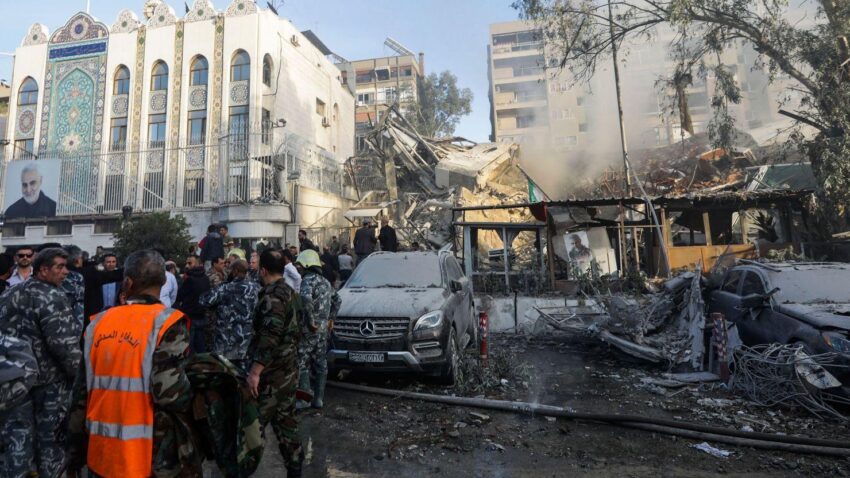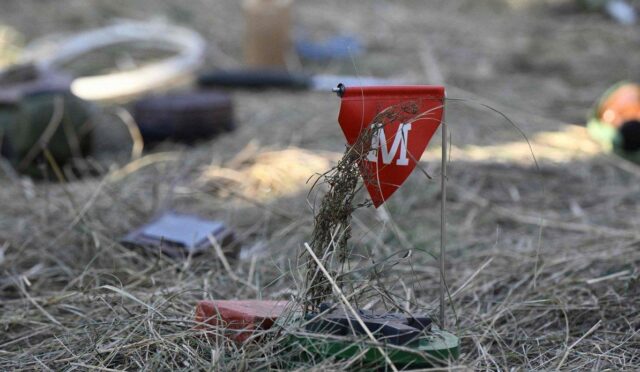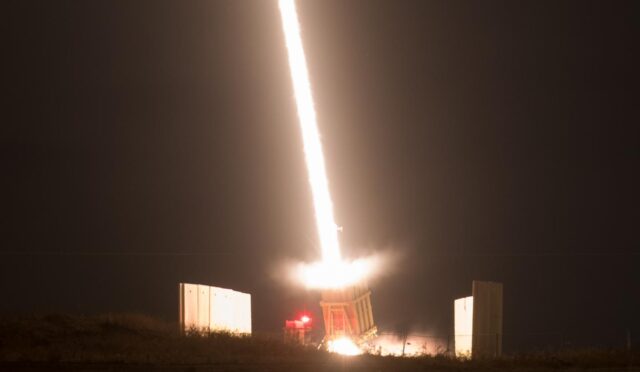Damascus Church Attack: A Turning Point in Syria’s Security
A tragic shooting and suicide bombing at a church in Damascus occurred during a packed Sunday service, claiming the lives of at least 22 individuals. Authorities have attributed this unprecedented assault to a member of the Islamic State group, marking a grim occasion in the city’s recent history. This incident is particularly significant as it marks the first attack of its kind in Syria’s capital since the fall of long-time leader Bashar al-Assad in December, raising serious concerns about the security of the region.
The attack also represents the first strike directly targeting a church in Syria since the beginning of the civil war in 2011, as reported by a monitoring agency. The international community has voiced its condemnation of this horrifying act, highlighting the need for enhanced protection of minority groups within the country. First responders were seen carrying victims from the Orthodox church as security forces cordoned off the area.
A Grim Scene Unfolds
Witnesses provided harrowing accounts of the attack, describing scenes of chaos and bloodshed. The interior ministry’s announcement revealed that a suicide bomber linked to the Daesh (ISIS) terrorist group entered the Saint Elias church in the Dwelaa area, opened fire, and ultimately detonated himself using an explosive belt. State news agency SANA reported that the attack resulted in 22 fatalities and 63 injuries, a tragic number that underscores the scale of the devastation.
Among those present was Lawrence Maamari, who recounted the terrifying moments as the assailant began shooting. Despite attempts by congregants to subdue the attacker, he detonated himself, resulting in widespread panic. Eyewitness Ziad Helou, who was nearby at a shop, described hearing the gunfire followed by an explosion, noting that debris from the church erupted into the air, contributing to the atmosphere of terror that engulfed the area.
Communities in Shock
The explosion not only caused immediate casualties but also ignited widespread panic among worshippers, including children and elderly individuals. Eyewitness accounts indicate that families rushed to find missing loved ones in the wake of the attack, as chaos reigned in the vicinity of the church. The Syrian Observatory for Human Rights recognized this incident as the first suicide attack within a church during the ongoing conflict, emphasizing its unprecedented nature.
While previous conflicts had seen churches damaged or attacked nearby, this direct assault represents a significant escalation in violence. The Orthodox patriarchate in Damascus urgently called for the authorities to take responsibility for protecting the sanctity of churches and ensuring the safety of all citizens within Syria.
A Demographic Shift
Syria’s Christian population has sharply declined from approximately one million before the war to fewer than 300,000, driven largely by displacement and emigration resulting from the ongoing turmoil. The United Nations special envoy for Syria, Geir Pedersen, expressed outrage over the attack, demanding a thorough investigation to bring those responsible to justice. In a show of solidarity, U.S. special envoy Tom Barrack reaffirmed Washington’s commitment to support Syria in its struggle against forces that seek to instill fear and chaos.
Turkey, which maintains close relations with the new Syrian authorities, expressed confidence that the Syrian people will unite against terrorism. Meanwhile, France reiterated its commitment to facilitating a transition in Syria that respects the rights of all citizens, regardless of their faith, to live in peace and security. Al-Azhar, a leading center of Sunni Islamic thought in Egypt, condemned the attack as a blatant violation of the right to life and worship.
A Call for Responsibility
In response to this heinous attack, Syria’s foreign ministry characterized it as a desperate attempt to undermine national unity and destabilize the country. President Assad has positioned himself as a protector of minority groups, yet these communities continue to face considerable threats throughout the nearly 14-year civil war, many of which are attributed to jihadist groups, including ISIS.
Since the new authorities assumed power, there has been increasing international pressure for the administration to protect minority groups and ensure their active participation in the nation’s transition. Interior Minister Anas Khattab announced that specialized units have commenced investigations. He assured the public that such terrorist acts will not hinder the state’s commitment to achieving civil peace in Syria.
The Road Ahead
In an earlier interview, Minster Khattab noted that ISIS had recalibrated its strategy, now focusing on meticulously planned assaults on strategic targets, particularly within Christian and Shiite communities. Nonetheless, he emphasized that the authorities have successfully thwarted several of these efforts. Last month, ISIS claimed its first attack on the new government forces in Syria, and authorities have reportedly apprehended members of an ISIS cell near Damascus preparing for future assaults.
In the early years of the civil war, ISIS occupied vast areas of Syrian and Iraqi territory, declaring a so-called ‘caliphate’ in 2014 before suffering territorial losses by 2019. The current attack, however, raises serious concerns about the revival of such extremist ideologies as the Syrian nation grapples with its tumultuous reality.







